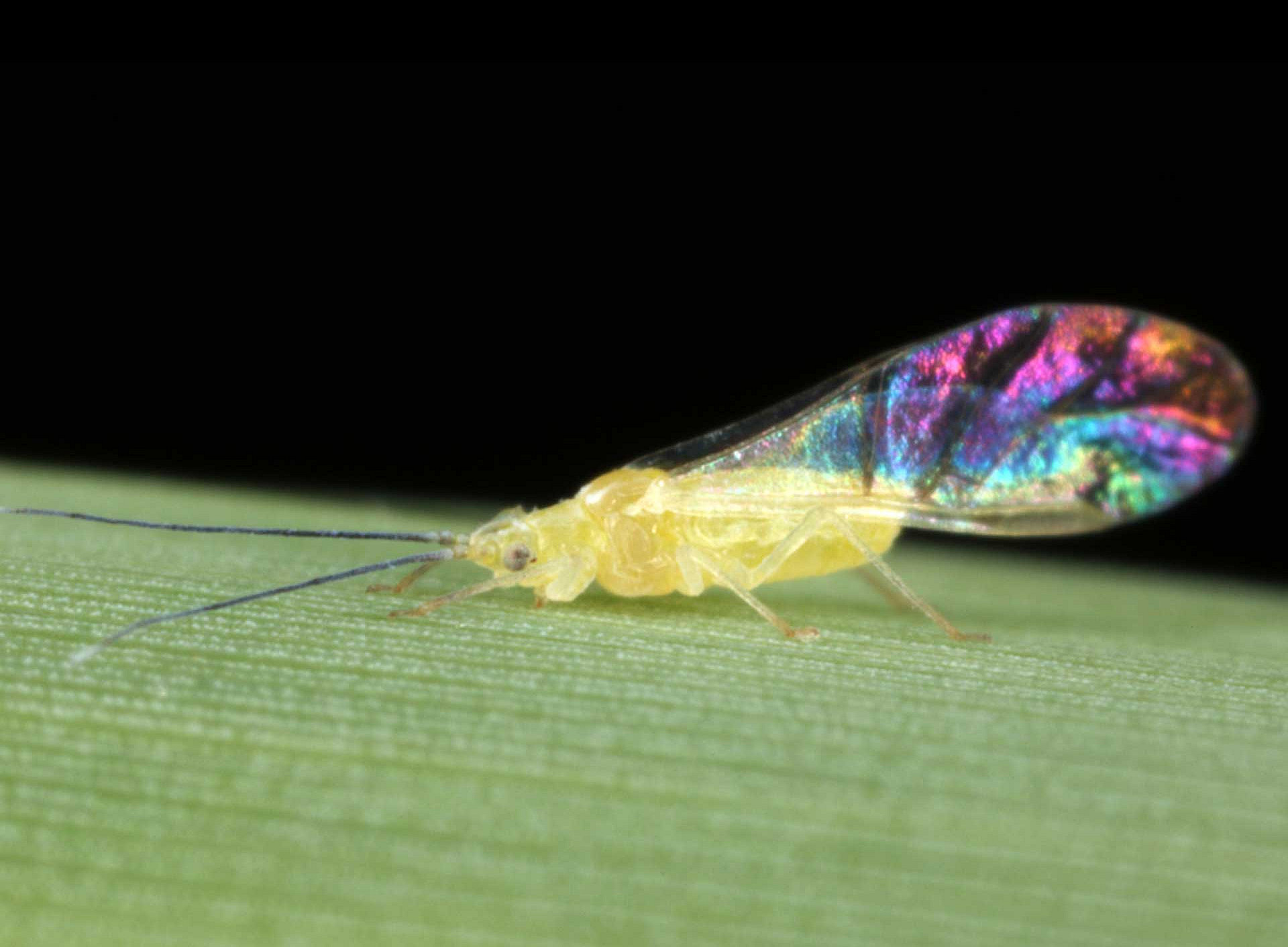Und mit 586 aufgespürten Arten und 1495 Beobachtungen machte Gernot Kunz vom Institut für Biologie der Uni Graz als „aktivster Beobachter“ ex aequo mit zwei Kollegen aus Ulm und Berlin das Rennen. Als Sieger ging Kunz ebenso in der Kategorie „spektakulärste Beobachtung“ hervor. Seine Fotos „Pseudoskorpion an Schmuckfliege“ und „Röhrenlaus auf Bambus“ belegten die ersten zwei Stockerlplätze.
Weitere Teilnehmer:innen trugen mit Hilfe der kostenlosen App iNaturalist mit insgesamt knapp 10.000 Beobachtungen ebenso wesentlich sowohl zum Bioblitz-Gewinn als auch zur Erfassung der Biodiversität bei.
2000 Wildarten
Unter den fast 2000 Wildarten, die im Botanischen Garten der Uni Graz aufgespürt wurden, stechen folgende ganz besonders heraus:
Röhrenlaus auf Bambus: Zum ersten Mal in Österreich wurde die Röhrenlaus-Art Takecallis nigroantennata auf Bambus nachgewiesen. Aktuell wird diese Art am Institut für Biologie genetisch für das Austrian Barcoding of Life Projekt analysiert.
Pseudoskorpion auf einer Schmuckfliege: Der wenige Millimeter kleine, flugunfähige Pseudoskorpion aus der Familie Chernetida nutzt die Schmuckfliege (Physiphora alceae) als Transportmittel.
Auenpflanze der Mur: Wo einst vor Jahrhunderten Aulandschaften des Flusses Mur lagen, hat sich längst die Stadt ausgebreitet. Auch der Botanische Garten war vor langer Zeit Teil einer Au. Davon zeugt nach wie vor das Gartenwildkraut Myosotis sparsiflora. Die Art ist in Deutschland als gefährdet, in Österreich als regional gefährdet eingestuft.
Laubmoos: Philonotis marchica ist ein seltenes Laubmoos gestörter Gewässerufer. Als solches taucht es immer wieder am Rande künstlicher Gewässer auf und kann sich hier jahrelang halten.
Ulrike Grube vom Institut für Biologie begründet den Erfolg: „Fachkundige Studierende und Wissenschaftler:innen des Instituts für Biologie sowie Expert:innen des Universalmuseums Joanneum und naturbegeisterte Besucher:innen haben eine umfangreiche Kartierung vorgenommen.“
Der Pflanzenbestand im Botanischen Garten umfasst etwa 7000 kultivierte Arten und ist Teil einer wissenschaftlichen Sammlung. „Die so erlangte, große Vielfalt an Blütenformen, aber auch das Schaffen von kleinstrukturierten Lebensräumen etwa durch das Liegenlassen von Totholz lockt zahlreiche Kleinlebewesen an, die hier ihre Nischen finden“, beschreibt Grube. Und: „Je vielfältiger das Blütenangebot, umso reichhaltiger die Vielfalt an speziell angepassten Bestäuberinsekten.“
